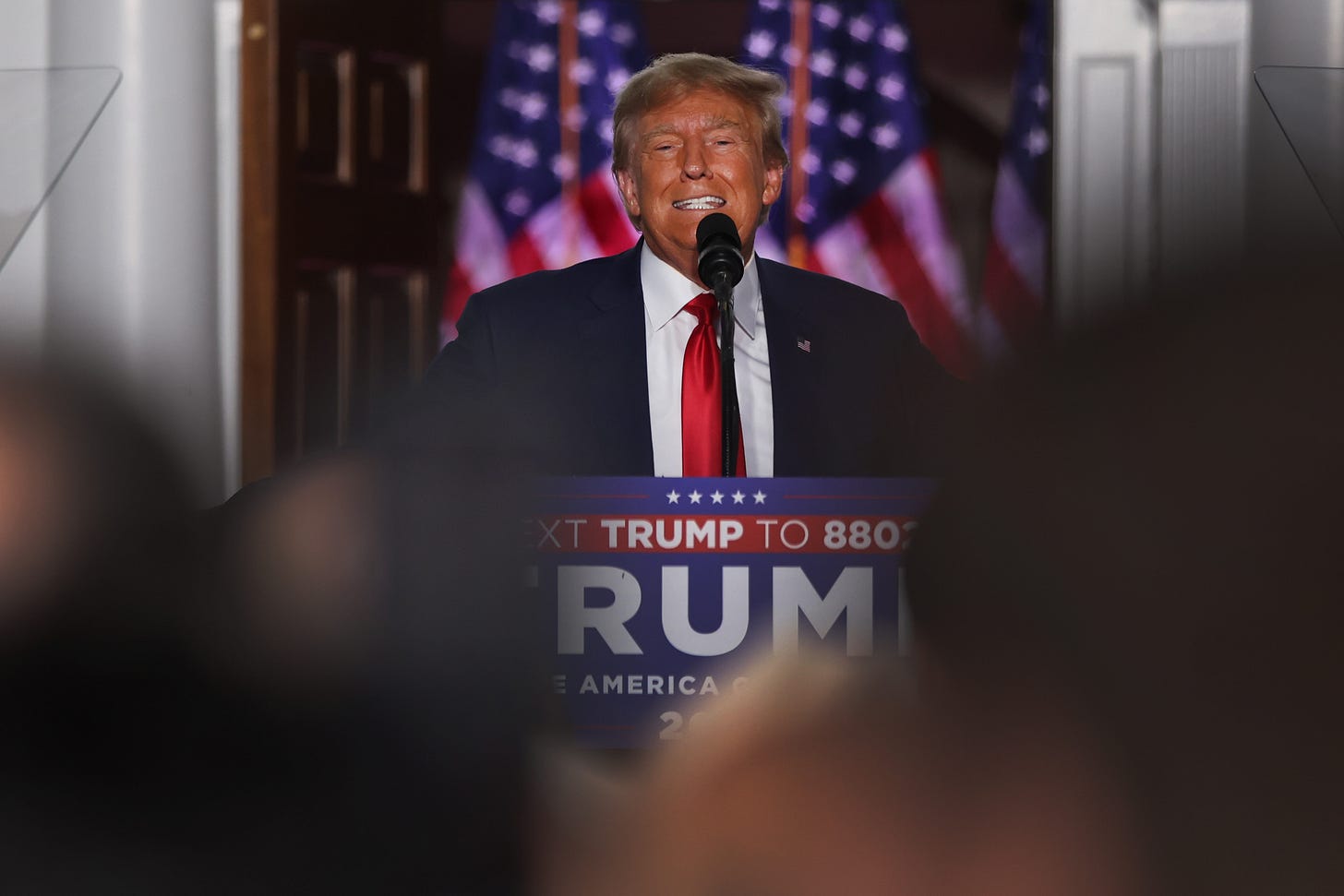Trump’s Obviously Bad Argument About the Discovery Process
Are the news media and the public the real intended audience?

ON FRIDAY, U.S. DISTRICT JUDGE Tanya Chutkan will hold a hearing on Special Counsel Jack Smith’s motion for a protective order in the January 6th-related criminal case pending against Donald Trump. The government filed the motion immediately following Trump’s announcement on Truth Social, posted the day after his “not guilty” plea last week, that “IF YOU GO AFTER ME, I’M COMING AFTER YOU!” Although the government’s proposal is routine and relatively modest in its scope, Trump’s legal team is irresponsibly running around claiming it’s a First Amendment “attack on . . . members of the press.” Chutkan will see through this ruse, for sure. But the damage has already been done: By forcing the press to engage in this senseless debate, Trump has again stoked doubt about the foundations of our legal system.
Immediately upon Trump’s arraignment, the January 6th case entered the “discovery” phase—the process by which the government and the defense exchange information with each other. In criminal cases, the government must turn over evidence that it intends to use at trial as well as material that could exonerate the defendant by pointing to his innocence or shedding light on the credibility of the government’s witnesses, for example. Rule 16 of the Federal Rules of Criminal Procedure governs the discovery process in every criminal case in every federal court in the country. Part (d) of that rule expressly states that “at any time the court may, for good cause, deny, restrict, or defer discovery or inspection, or grant other appropriate relief.”
The suggestion by Trump’s counsel that Smith’s request violates the First Amendment ignores the plain text of Rule 16 which, by the way, was promulgated by the United States Supreme Court and made into binding law by the U.S. Congress.
Team Trump’s public exhortations also distort the specifics of Smith’s proposal, which would allow Trump’s defense team to have full use of all discovery materials in order to prepare his defense, “including by showing discovery materials to witnesses who also agree to abide by the order’s terms.” Where Smith would draw the line is at allowing Trump to disseminate discovery materials to the public. After all, Smith notes, Trump “has previously issued public statements on social media regarding witnesses, judges, attorneys, and others associated with legal matters pending against him” (read: attacks and threats). Allowing him to share the January 6th evidence—including personal details regarding witnesses as well as confidential grand jury information—“could have a harmful chilling effect on witnesses or adversely affect the fair administration of justice” (read: spook witnesses from giving testimony out of fear for their own safety).
In Trump’s written response, his lawyers acknowledge that Rule 16(d) authorizes protective orders, but claim (wrongly) that the rule limits them to cases involving “particularized safety or security concerns.” Trump’s counsel then proposes different language that purportedly balances “the rights of President Trump and the public to free speech and an open proceeding.” Trump’s recognition in his filing that Smith’s request is consistent with Rule 16 is the part of the dispute that the public does not hear. Instead, the media is airing his claim that the government is trying to “impose content-based regulations on President Trump’s political speech” in an “untargeted method [that] offends both the First Amendment . . . and Rule 16”—as if the fact that his lawyers make the argument automatically means that it’s a valid one requiring resolution by a judge.
Smith’s team filed a swift rebuttal brief, emphasizing that “there is no right to publicly release discovery material, because the discovery process is designed to ensure a fair process before the Court, not to provide the defendant an opportunity to improperly press his case in the court of public opinion.” To state this is to state the obvious. But Smith has to state the obvious because Trump’s lawyers are making him do it. And they are making the judge make a ruling on the obviousness of the obvious.
Meanwhile, the D.C. federal court actually has a local criminal rule, Rule 57.7(b), that specifically prohibits what Trump’s team is proposing. In normal times with normal lawyers, the fact that this is all established law would in most cases have prompted the parties to work something out behind the scenes, without any need to involve the court.
To Smith’s credit, his latest filing barely mentions Trump’s First Amendment argument, burying the response in a footnote, as if refusing even to legitimize it. As Smith notes, the Supreme Court in Seattle Times v. Rhinehart made clear back in 1984 that “an order prohibiting dissemination of discovered information before trial is not the kind of classic prior restraint that requires exacting First Amendment scrutiny.” Tragically, Trump’s lawyers don’t seem to care about the actual rule of law. Their willingness to turn a blind eye to their ethical obligations on this front might wind up to be their client’s best defense.



